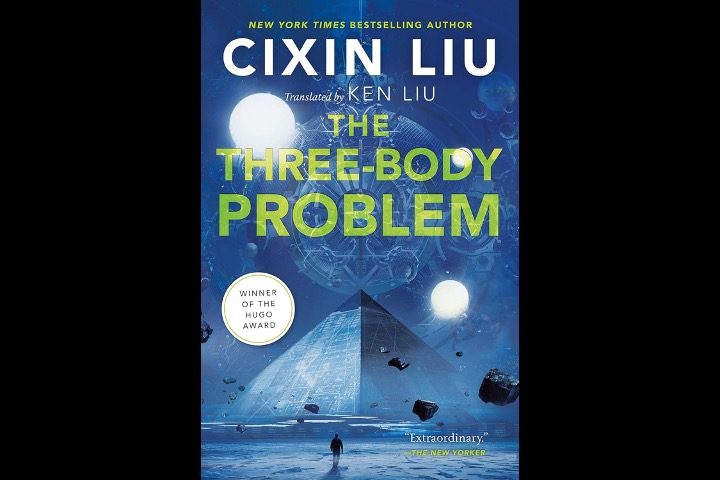
In its quest to shape the minds of the American public at large and the youth in particular, the Chinese psychological operations apparatus is stepping heavily into genre entertainment.
As detailed in a recent Associated Press report, science fiction was once a small niche in China, looked down upon with suspicion by the controlling government. Now it is one of the country’s largest cultural exports. Chinese authors are heralded by big names in the industry and given deals with film productions companies such as Netflix. Liu Cixin, the popular sci-fi writer who has won China’s Galaxy Award nine times and took home the Hugo Award in 2015, has been praised by the likes of Mark Zuckerberg and Barack Obama.
In fact, Netflix is set to release an adaptation of Liu’s The Three-Body Problem this month, produced by the team behind Game of Thrones.
Those within the Chinese sci-fi community tout the growth of their literary movement as the culmination of decades’ worth of arduous work by creatives.
“Sci-fi has always been a bridge between different cultures and countries,” said Yao Haijun, who serves as editor-in-chief of the oldest sci-fi magazine in China, Science Fiction World. “Every author can have their own vision of the future, and they can coexist and be respected even if they clash.”
China’s communist regime suppressed science fiction for decades, accusing it of being a trait of the decadent West. But in the 21st century, the regime realized that literature and multimedia are a potent way of delivering Chinese ideas and influence to the people of Western countries.
As AP notes of Beijing’s initial war against speculative fiction:
The genre flourished in China in the first half of the 20th century, fueled by an interest in new technology and translated stories from abroad. But it disappeared during the Cultural Revolution, a tumultuous decade beginning in 1966 when Maoist radicals targeted “bourgeois” elements including both scientists and many types of literature.
Sci-fi saw a resurgence as China began opening to the world after the Mao era in the late 1970s and early 1980s. Authors like Zheng Wenguang and Ye Yonglie wrote stories about traveling into space, while China’s nascent space program launched its first satellites into orbit. Regional magazines such as Chengdu’s Science Fiction World mushroomed.
But in the early 1980s, Beijing initiated a nationwide “spiritual pollution cleaning” campaign to quash the influence of the decadent West, and sci-fi was accused of being unscientific and out of line with official ideology. Most of the young publications were shuttered.
At the turn of the century, those in China who read science fiction were often consuming translated works from abroad. That began to change thanks to the efforts of Science Fiction World, whose editors held several conferences, including one in Beijing that featured American and Russian astronauts. That event received favorable press from the Chinese media, setting the stage for the flourishing of Chinese sci-fi with the backing and blessing of the government.
The Chinese government has fostered the expansion of an industry encompassing movies, video games, books, magazines, and exhibits, and established a research center in 2020 to monitor sci-fi’s ascent. A blockbuster based on Liu’s short story “The Wandering Earth” shattered domestic box-office records, leading to two sequels.
Now Beijing is flexing its muscles by cajoling the sci-fi industry to cater to its whims. The 81st World Science Fiction Convention (Worldcon), held in Chengdu, China, in October 2023, was surrounded by controversy regarding China. The selection of Chengdu as the host city sparked criticism due to allegations of human rights abuses against Uyghurs and other minority groups in China’s Xinjiang province. Prominent figures such as Neil Gaiman and the estate of Ursula K. Le Guin, signed an open letter protesting the choice and calling for the convention’s relocation.
Then, concerns arose about potential censorship of Hugo Award nominations and acceptance speeches due to China’s government restrictions on creative content. Leaked emails from the Hugo Award organizers suggested shortlisting some authors, searching their books and social media profiles for remarks that might be offensive to China.
This is similar to the way in which China is now steering the direction of Hollywood. The movie studios that have no qualms about offending American conservatives basically bend over backward to satisfy Chinese censors.
As The New American previously reported, Chinese military strategists are very open about their use of entertainment and social media as means for waging “mental warfare” against the United States.
Peng Zhen-gang, the deputy director of Beijing’s propaganda department, wrote in a report that “Entertainment is the main motivation for Generation Z content consumption,” and added that a better understanding of the minds of those they are targeting allows the Chinese regime to “explore effective communication strategies and paths, [and] improve the ability to set agendas.”
While there is much legitimate talk about the potential for war between the United States and China, ultimately the CCP’s long-term strategy is to render such a confrontation unnecessary by gradually conditioning the minds of the American people until the United States cedes to China’s goals of its own “free will.”




